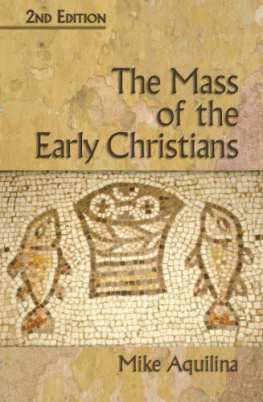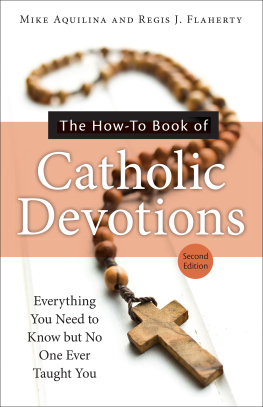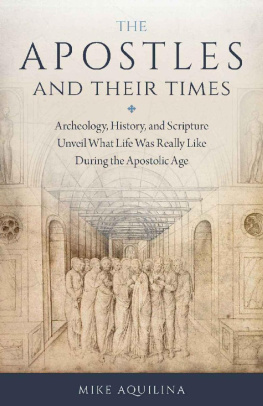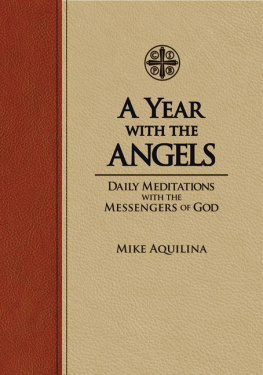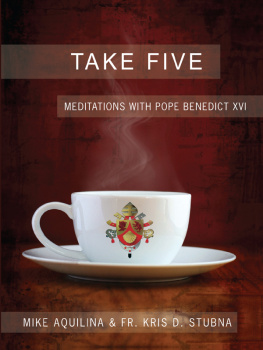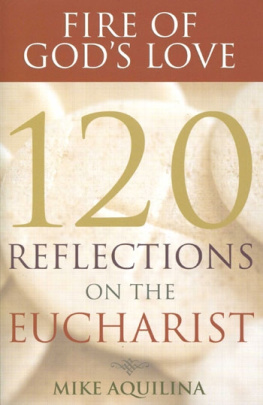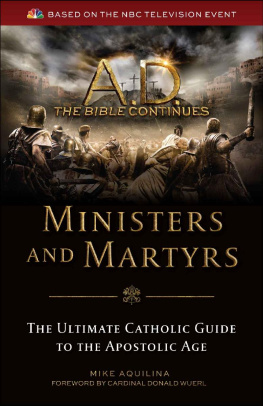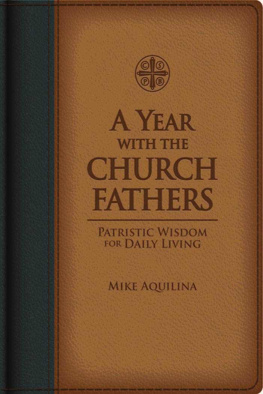Mike Aquilina - The World of Ben Hur
Here you can read online Mike Aquilina - The World of Ben Hur full text of the book (entire story) in english for free. Download pdf and epub, get meaning, cover and reviews about this ebook. year: 2016, publisher: Sophia Institute Press, genre: Detective and thriller. Description of the work, (preface) as well as reviews are available. Best literature library LitArk.com created for fans of good reading and offers a wide selection of genres:
Romance novel
Science fiction
Adventure
Detective
Science
History
Home and family
Prose
Art
Politics
Computer
Non-fiction
Religion
Business
Children
Humor
Choose a favorite category and find really read worthwhile books. Enjoy immersion in the world of imagination, feel the emotions of the characters or learn something new for yourself, make an fascinating discovery.
- Book:The World of Ben Hur
- Author:
- Publisher:Sophia Institute Press
- Genre:
- Year:2016
- Rating:5 / 5
- Favourites:Add to favourites
- Your mark:
- 100
- 1
- 2
- 3
- 4
- 5
The World of Ben Hur: summary, description and annotation
We offer to read an annotation, description, summary or preface (depends on what the author of the book "The World of Ben Hur" wrote himself). If you haven't found the necessary information about the book — write in the comments, we will try to find it.
The World of Ben Hur — read online for free the complete book (whole text) full work
Below is the text of the book, divided by pages. System saving the place of the last page read, allows you to conveniently read the book "The World of Ben Hur" online for free, without having to search again every time where you left off. Put a bookmark, and you can go to the page where you finished reading at any time.
Font size:
Interval:
Bookmark:
Also by Mike Aquilina
from Sophia Institute Press:
Ministers and Martyrs
The Ultimate Catholic Guide
to the Apostolic Age
Mike Aquilina
The World of Ben-Hur
SOPHIA INSTITUTE PRESS
Manchester, New Hampshire


METRO-GOLDWYN-MAYER is a trademark of Metro-Goldwyn-Mayer Lion
Corp. 2016 Metro-Goldwyn-Mayer Studios Inc. All Rights Reserved.
BEN-HUR 2016 Metro-Goldwyn-Mayer Pictures Inc.
and Paramount Pictures. All Rights Reserved.
Cover photography copyright 2016 Metro-Goldwyn-Mayer Pictures
Inc. and Paramount Pictures Corporation. All Rights Reserved.
Visit the motion picture website at www.benhurmovie.com.
Printed in the United States of America. All rights reserved.
Cover design by Perceptions Design Studio.
Unless otherwise noted, biblical references in this book are taken from the Catholic Edition of the Revised Standard Version of the Bible, copyright 1965, 1966 by the Division of Christian Education of the National Council of the Churches of Christ in the United States of America. Used by permission. All rights reserved.
No part of this book may be reproduced, stored in a retrieval system, or transmitted in any form, or by any means, electronic, mechanical, photocopying, or otherwise, without the prior written permission of the publisher, except by a reviewer, who may quote brief passages in a review.
Sophia Institute Press
Box 5284, Manchester, NH 03108
1-800-888-9344
www.SophiaInstitute.com
Sophia Institute Press is a registered trademark of Sophia Institute.
Library of Congress Cataloging-in-Publication Data
Names: Aquilina, Mike, author.
Title: The world of Ben-Hur / Mike Aquilina.
Description: Manchester, New Hampshire : Sophia Institute Press, 2016. |
Includes bibliographical references.
Identifiers: LCCN 2016011150 | ISBN 9781622823178 (pbk. : alk. paper) ePub ISBN 978-1-622823-185
Subjects: LCSH: Wallace, Lew, 1827-1905. Ben-Hur. | Wallace, Lew, 1827-1905.
| Christianity in literature. | Authors, American19th
century Biography. | Literature and society United States History 19th
century.
Classification: LCC PS3134 .B427 2016 | DDC 813/.4 [B] dc23 LC record available at https://lccn.loc.gov/2016011150
To my sister Mary
The Life-Changing Encounter with History
Who cares about history?
The hardest thing to explain to any high school student is why we should care about history. You can make a case for science. You can explain the use of geometry. You might even be able to prove that Nathaniel Hawthorne is worth something. But history? Come on. Who cares what happened in 54 B.C.?
But take those same teenagers out of the high school, and youll find that they do care, very deeply. The proof of it is that we have another movie version of Ben-Hur .
People naturally want to feel a connection with the past. It almost seems to be coded into our DNA. Long before writing was invented, we were telling stories about our origins, our ancient heroes, and our family history. We sat around the campfire, listening to the oldest member of the tribe tell us what he had heard from his great-grandmother, and we were enthralled. The distant past came alive in our imaginations.
And in that imaginary encounter with the past, we learned about ourselves. We learned why we believed what we believed, why we did what we did, how we got to be where we are now. Instinctively we knew then, and we know now, that the answers to our questions about the present all lie somewhere in the past.
Christians have always been especially attracted to that encounter with the past in the imagination, because our religion is based on a historical event. A particular thing happened in a particular place at a particular time, and it changed everything: thats what Christians believe. We believe that our lives are fundamentally different today because of things that happened in Jerusalem in the first century.
How do we encounter that history? How do we make it live , so that we feel as though weve experienced it, not just heard some dry facts about it?
First, we can read the original sources. There are four histories of Jesus life the Gospels. Theres a history of the very beginning of the Church the Acts of the Apostles. We also get some glimpses of the world of the early Christians from the letters they wrote, especially the letters of Paul.
But for modern readers many of those sources are not as vivid as they were a couple of millennia ago. The Gospels tell us the facts, but they are very sparing with the atmosphere. Thats not surprising. The Gospels were originally written by and for people who lived in the same world Jesus lived in.
Think of all the things you take for granted when you read or write about the world today. If you say Manhattan in an American book, thats all you have to say to bring up images of a crowded island bristling with skyscrapers, filled with millions of people from every continent, loud with the noises of traffic jams and subway trains. Even an American who has never been to New York can imagine Manhattan. So it was in the first century: if you said Antioch or Jerusalem, that was all you had to say to fill peoples minds with images, sounds, smells, and ideas. The New Testament writers took that background for granted and concentrated on the message that people hadnt heard.
When you think about it, that probably explains something about the extraordinarily rapid spread of Christianity in those first few centuries. Here was a riveting story that people could imagine happening right in front of their eyes. It was real, and it had happened in their own world. They could see the sights, hear the sounds, smell the smells.
It wasnt until that world disappeared that people needed a little help imagining the world of Christ and the apostles.
* * *
In the Middle Ages, most people in Europe couldnt read. Even for the people who could read, books were rare and thus extraordinarily valuable. Great churches or monasteries had libraries where the books were chained to desks.
Yet Christianity, as we remember, is a historical religion. Its based entirely on the fact that certain things happened at particular times in history. So how do you teach people sacred history when they cant read? And how do you get them to care? How do you make the events vivid to them, when the world is utterly different from the way it was when those events happened?
The answer medieval Europeans came up with was the mystery plays.
You could gather people into churches and preach at them, but as many a modern preacher has found you cant really make them listen. But if you actually show them the stories, they perk up. They pay attention. They remember the message.
It started in the churches, with just a little bit of illustrative acting out of the stories. After a while, the acting out grew into full-scale dramas with scripts and characters. When the Church authorities decided that priests should not take part in stage plays, the guilds associations of craftsmen took over the management of the plays. After that, they grew into huge events that the whole town turned out to see, with elaborate costumes and props to make the whole experience feel all the more real.
The anonymous writers of these plays probably monks at first approached their subjects with great freedom. You could say they had a lot of fun with them. They peered behind the scenes in the Gospel stories, imagining what was really going on, just as movies like Ben-Hur do today.
Next pageFont size:
Interval:
Bookmark:
Similar books «The World of Ben Hur»
Look at similar books to The World of Ben Hur. We have selected literature similar in name and meaning in the hope of providing readers with more options to find new, interesting, not yet read works.
Discussion, reviews of the book The World of Ben Hur and just readers' own opinions. Leave your comments, write what you think about the work, its meaning or the main characters. Specify what exactly you liked and what you didn't like, and why you think so.


